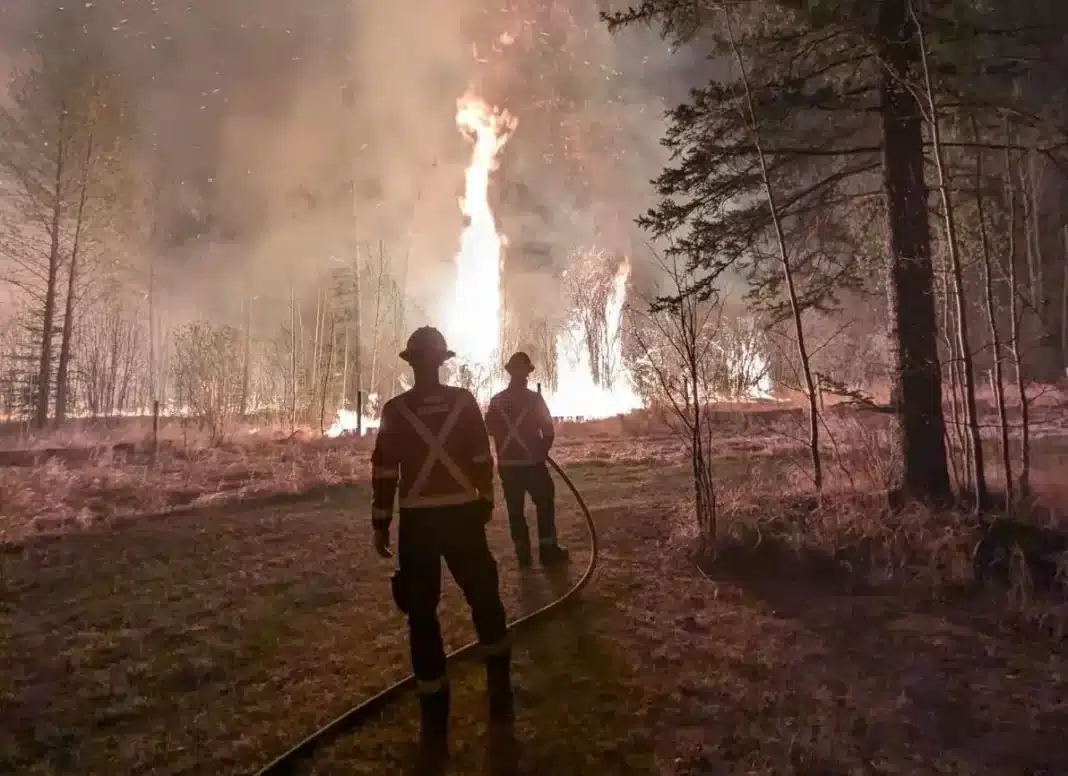In a ground-breaking study, nearly 40% of forest areas burned by wildfires in the western United States and southwestern Canada over the past 40 years have been linked to carbon emissions from 88 of the world’s largest fossil fuel producers and cement manufacturers. This crucial research, published Tuesday in the journal Environmental Research Letters, shines a light on oil and gas companies’ role in climate change.
The researchers argue that these companies’ extraction and burning of fossil fuels have escalated the wildfire threat. The process increases global temperatures and exacerbates dry conditions across the West. The increased aridity has resulted in a “thirstier” atmosphere, making plants and vegetation drier and more prone to burning.
This study is an important part of a growing field known as extreme event attribution. This area of research explores the impact of global warming on extreme events like heat waves, droughts, and wildfires. The researchers hope their findings will encourage communities affected by wildfires to consider holding these companies accountable.
Kristina Dahl, a principal climate scientist with the Union of Concerned Scientists and one of the study authors, states, “We know the fossil fuel industry has known for decades what the impact of their products would be on our climate… We really wanted to spotlight the fossil fuel industry’s role in driving the West’s worsening wildfires so they can be held accountable for their share of the costs.”
Dahl and her colleagues built on prior research that indicated that carbon emissions from the top 88 fossil fuel producers and cement manufacturers, including Exxon Mobil, BP, Chevron, and Shell, have significantly contributed to the Earth’s warming. The researchers found that emissions from these companies have led to changes in global temperatures and drying conditions in Western North America, making the area more prone to wildfires.
The researchers determined that these emissions were responsible for 37% of the 53 million acres of forest area burned by wildfire since 1986. While the study didn’t account for non-climate factors such as fire suppression, Indigenous burning prohibition, and human-sparked fires due to increased human encroachment into wilderness areas, it noted that these factors have not significantly affected the climate-burned-area relationship.
However, the findings have sparked controversy, particularly in the fossil fuel industry. Kevin Slagle, a spokesperson for the Western States Petroleum Association, told the LA Times that blaming the industry would not provide solutions. He emphasised the need for “serious and realistic climate and energy policy discussions,” warning against the “blanket demonisation of an industry that has been a cornerstone of our economy for decades.”
In the field of climate science, there has been a growing focus on a subfield known as attribution science since the early 2000s. Noah Deffenbaugh, a climate scientist at Stanford University’s Doerr School of Sustainability, explained that this science quantifies the contribution of historical global warming to individual events. These findings could serve as the foundation for liability lawsuits against fossil fuel companies.
The U.S. Supreme Court last month declined to hear appeals from oil and gas companies seeking to move climate change lawsuits to federal courts. This decision paves the way for more such lawsuits to be heard in state courts, where plaintiffs are believed to have a higher chance of winning substantial damages.
Rong Fu, the UCLA Joint Institute for Regional Earth System Science and Engineering director, praised the study’s methodology. She suggested that the authors might have underestimated the impacts of the companies’ emissions because they included aerosol emissions in their calculations.
As wildfires continue to rage across the western U.S., the question of corporate responsibility and the urgent need for sustainable energy alternatives grow more pressing. The research signals that corporate accountability for wildfires extends beyond immediate utility failures, such as those by Pacific Gas & Electric Co., and implicates a broader set of corporate actors in the fossil fuel industry.
Dahl concluded, “This isn’t just about utilities sparking some of our largest and deadliest wildfires. There’s a much bigger set of corporate actors who have not been held accountable at all. We need to change that.”






